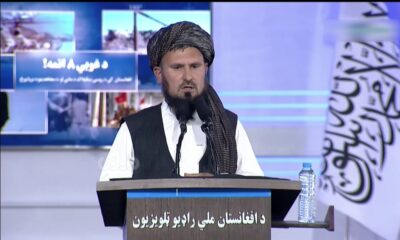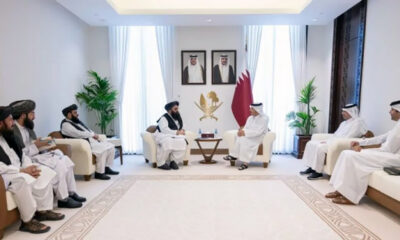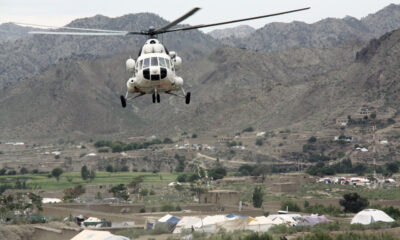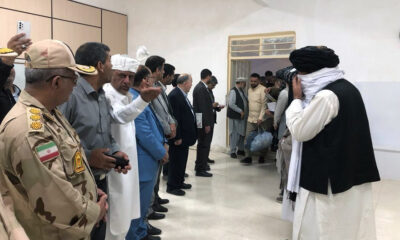Latest News
Khalilzad’s meetings continue, this time with peace advocates
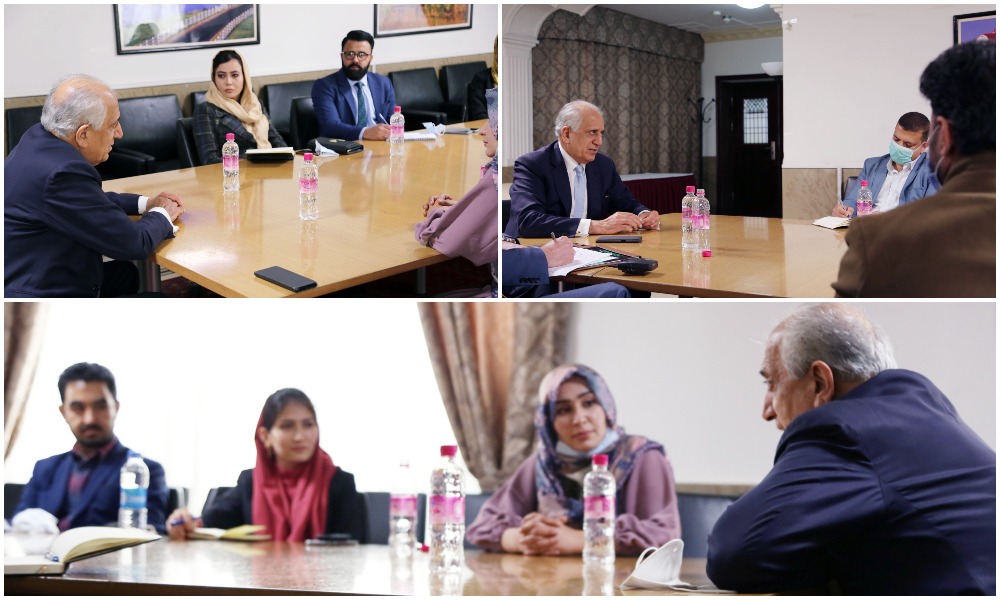
US Special Representative for Afghanistan Reconciliation Zalmay Khalilzad met with Afghan peace advocates on Tuesday to hear their views on the importance of men and youth working together with women to protect the gains of the last two decades.
They also discussed strategies to accelerate peace and reconciliation efforts in Afghanistan.
Khalilzad also met with Afghan civil society leaders to hear their views on how to protect girls’ and women’s rights in any future political agreement leading to peace in Afghanistan where he noted that women leaders are vital to peace and reconciliation in the country.
Khalilzad also met with media executives about recent assassinations and the impact on media reporting and press freedom.
On this issue, Khalilzad called for the expeditious investigation and prosecution of the perpetrators for all these targeted killings.
During the meeting with Afghan media leaders Khalilzad condemned the ongoing violence and threats and called for increased protection for journalists and media workers throughout Afghanistan.
Khalilzad’s meetings coincided with the release of a statement Tuesday by Amnesty International (AI) on the Afghan government’s failure to deliver on their pledge to establish a functional body dedicated to protecting human rights defenders in Afghanistan.
In the statement, the global rights watchdog said more than three months ago a Presidential Decree was issued on the establishment of a Joint Commission for the Protection of Human Rights Defenders.
However “no practical steps have been taken to make it an effective protection mechanism, with a lack of information forthcoming on any plan or strategy to address the escalating threat faced by members of Afghan civil society”, the statement read.
Citing UNAMA figures, AI pointed out that an already “dire situation for Afghanistan’s human rights community has significantly worsened over recent months”, with no fewer than 11 human rights defenders and media workers killed in targeted attacks between the start of peace negotiations on 12 September 2020 and 31 January 2021.
The delay in having established a functioning mechanism “has already cost lives and there is no sign of the violence abating,” their statement read.
Meanwhile, Yamini Mishra, Amnesty International’s Asia-Pacific Director, said: “The announcement of the Joint Commission was a vital step towards providing human rights defenders across the country with the support and security they so desperately need.
“But it’s a body that currently exists in name only. In more than three months, during which we have witnessed a frenzied escalation of killings, attacks and threats against activists, the Commission has made no tangible progress or taken any meaningful action,” said Mishra.
“This delay has already cost lives and there is no sign of the violence abating. The Joint Commission must urgently expedite its work and prioritize the immediate security needs of human rights defenders, investigate all cases of threats, attacks and other forms of intimidation, and hold those responsible to account.”
Amnesty International also called on the Joint Commission to ensure that, where necessary, human rights defenders are provided with adequate protection measures including relocation, relief and psychosocial support.
According to UNAMA figures, 14 human rights defenders were killed in Afghanistan in 2020. This includes Mohammad Yousuf Rasheed, CEO of Free and Fair Election Forum of Afghanistan, who was shot dead on 23 December 2020 in morning rush-hour traffic in Kabul along with his driver, days after the Joint Commission was established.
According to its mandate, the Joint Commission has been established ‘for the purpose of strengthening human rights advocacy and addressing the national and international concerns of human rights-related issues in Afghanistan’.
“To achieve its goals and become worthy of its name, the Joint Commission must be provided with the necessary human and financial resources, and be fully supported by both the Afghan government and the international community,” said Mishra.
Latest News
Civil war devastated Afghans more than the Soviet invasion, says Fitrat
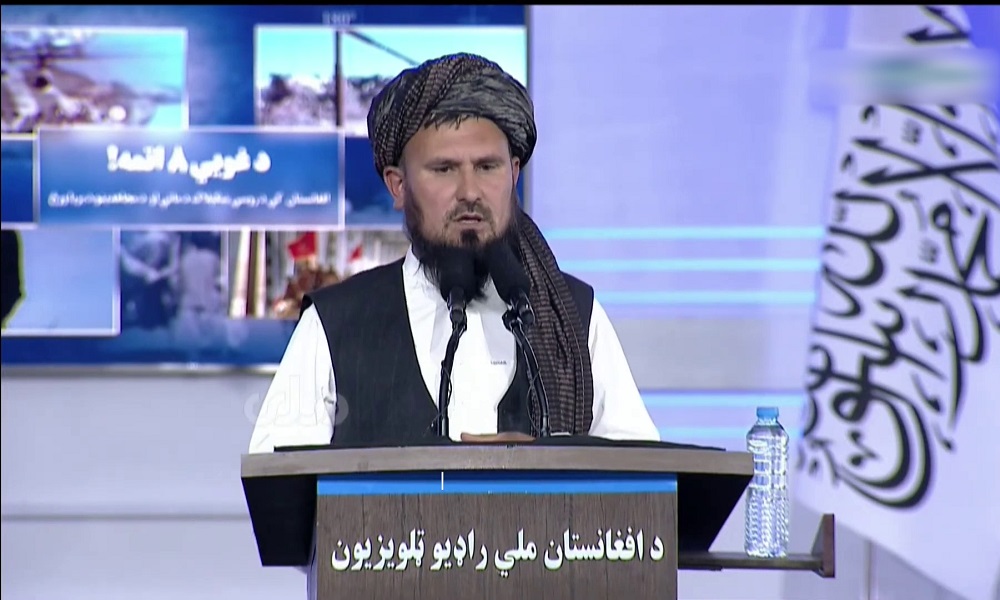
The civil war inflicted greater harm on the people of Afghanistan than the Soviet invasion, Fasihuddin Fitrat, Chief of the Army Staff of the Islamic Emirate, said on Monday
“The Soviet Red Army invasion did not make the Afghan people as miserable as the civil wars and power struggles made,” he said at a ceremony marking the 33rd anniversary of the mujahideen’s victory against the former Soviet-backed regime.
Fitrat warned that if someone is thinking of occupying Afghanistan using those who have fled the country, the Afghan people are ready to fight against them even if takes thousands of years.
“No matter how they impose war on the people of Afghanistan, the people have the courage and heroism,” he said. “Their honor will never allow them to be controlled by someone else. They will fight against them. They have fought for four and a half decades and are ready to fight for thousands more. If anyone thinks of occupying our country, they will fight against them.”
Acting Minister of Borders and Tribal Affairs, Alhaji Mullah Noorullah Noori also stressed that Afghanistan will soon will compete with other countries in political, economic and security sectors.
“The day will come when Afghanistan will compete with the world’s major countries in every field, politically, economically, security,” he said.
Acting Minister of Information and Culture Khairullah Khairkhwa called on the officials of the Islamic Emirate to refrain from “power worship,” warning that it would lead to the collapse of the government.
“If, God forbid, we revive the past and there is power worship here again and we try to increase our influence, the regime will collapse and the people will become divided,” he said.
At the ceremony, the Chief of Staff of Army also stressed the dignified return of refugees from neighboring countries, adding that humiliating them is unacceptable for the Islamic Emirate.
Latest News
Qatar’s Prime Minister meets with Afghanistan’s foreign minister
According to Gulf Times, the two officials reviewed the latest developments in Afghanistan and discussed ways to support the Afghan people.
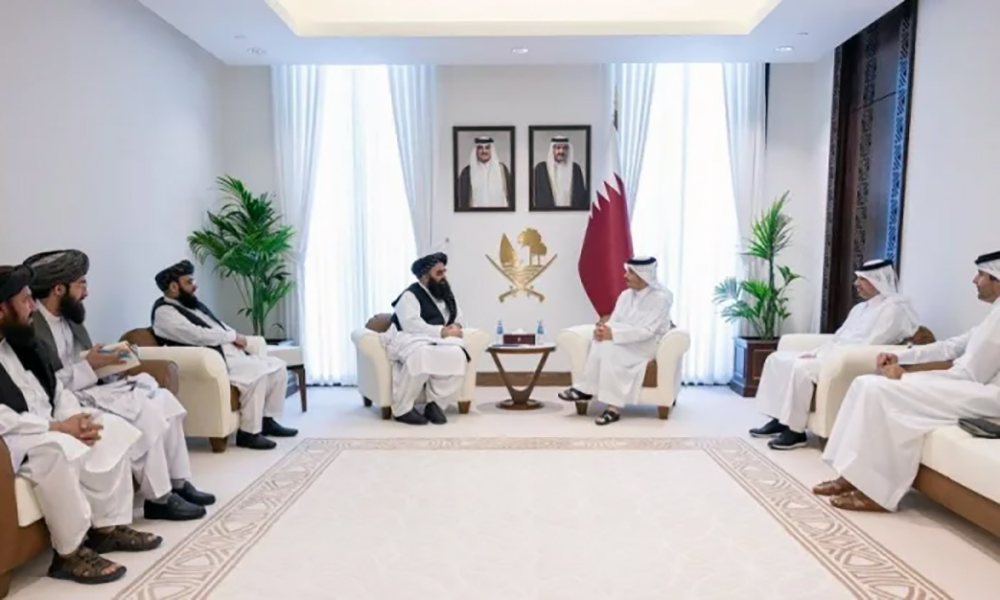
Qatar’s Prime Minister and Minister of Foreign Affairs Sheikh Mohammed bin Abdulrahman bin Jassim Al-Thani met with Afghanistan’s Acting Minister of Foreign Affairs Amir Khan Muttaqi who is currently visiting the country.
According to Gulf Times, the two officials reviewed the latest developments in Afghanistan and discussed ways to support the Afghan people.
Al-Thani emphasized the State of Qatar’s unwavering support for all segments of the Afghan people and its continued efforts to achieve security, stability, prosperity, and a dignified life in Afghanistan.
A source told Ariana News that Muttaqi arrived in Qatar on Sunday. No further details on his trip were given.
Latest News
WFP air services in Afghanistan may be suspended due to funding crisis
According to WFP, the organization urgently needs $10.5 million in funding to continue its relief flights in 2025.
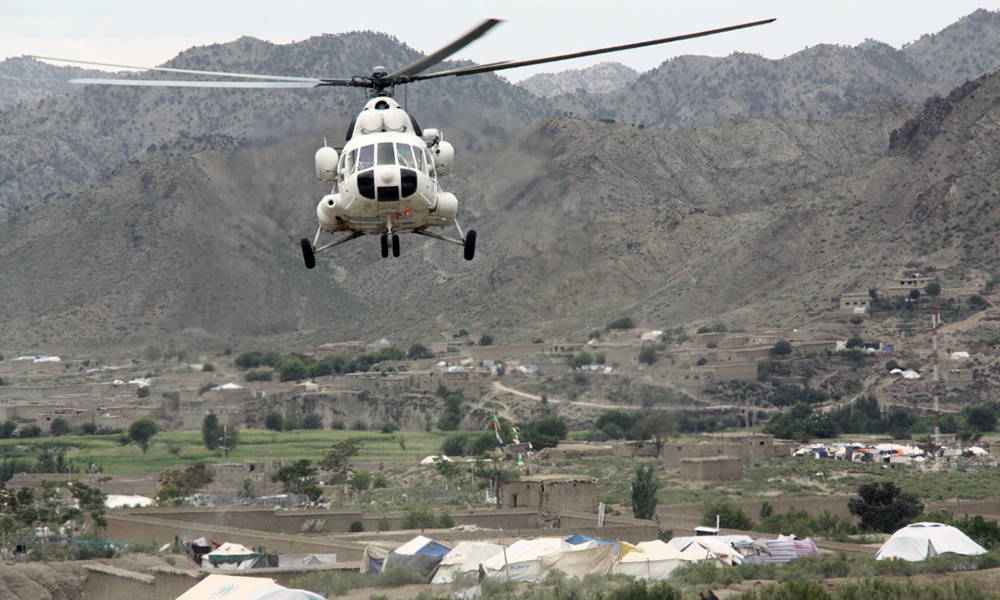
The UN’s World Food Program (WFP) in Afghanistan has announced the possible suspension of its air services in the country due to a severe shortage of funding.
WFP is one of the largest humanitarian organizations in Afghanistan and the air services have played a vital role in transporting humanitarian aid, especially to areas difficult to reach by land.
In a message posted on X, the WFP explained that in the past, when roads were blocked, air services were the only way to deliver aid to remote areas of Afghanistan. This aid included food, medicine, and other essential items that are essential for the survival of millions of people in need in Afghanistan.
According to WFP, the organization urgently needs $10.5 million in funding to continue its relief flights in 2025.
In addition, the WFP stated that humanitarian needs in Afghanistan continue to increase and millions of people across the country are dependent on humanitarian assistance.
WFP stated that if air services are stopped, it will become very difficult, if not impossible, to deliver vital aid to areas that are not accessible by road.
-

 Latest News5 days ago
Latest News5 days agoAWCC activates new site in Nangarhar’s Kuz Kunar district
-

 Latest News5 days ago
Latest News5 days agoTarig Ali Bakheet and Japan’s Deputy Foreign Minister discuss Afghanistan’s situation
-

 Business4 days ago
Business4 days agoPakistan’s deputy PM discusses Trans-Afghan Railway Line project with Uzbek FM
-
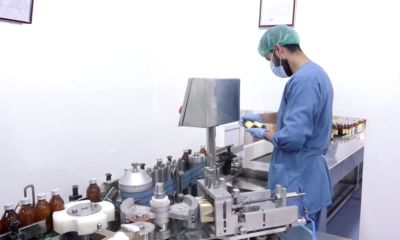
 Latest News3 days ago
Latest News3 days agoAfghanistan’s medicine output reaches 900 types: Pharma Union
-

 Latest News4 days ago
Latest News4 days agoAfghan delegation to participate in Iran’s international expo
-

 Latest News4 days ago
Latest News4 days agoWFP appeals for $25 million to help support Afghan returnees amid humanitarian crisis
-
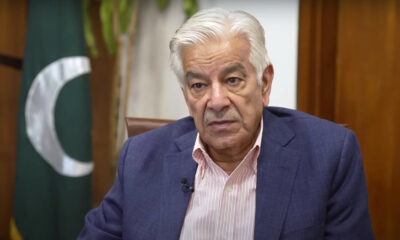
 Latest News3 days ago
Latest News3 days agoTerrorist attacks in Pakistan originate from Afghanistan: Khawaja Asif
-
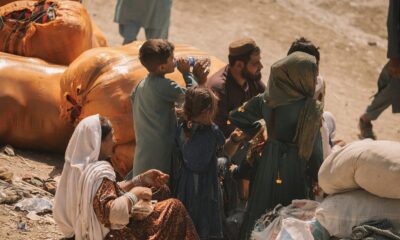
 Latest News4 days ago
Latest News4 days agoRegistered Afghan refugees must return by June 30 or face deportation: Pakistani official


